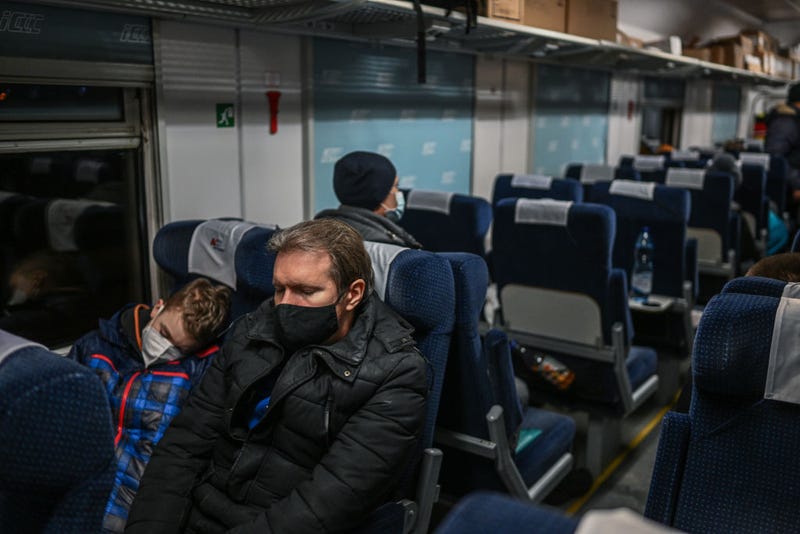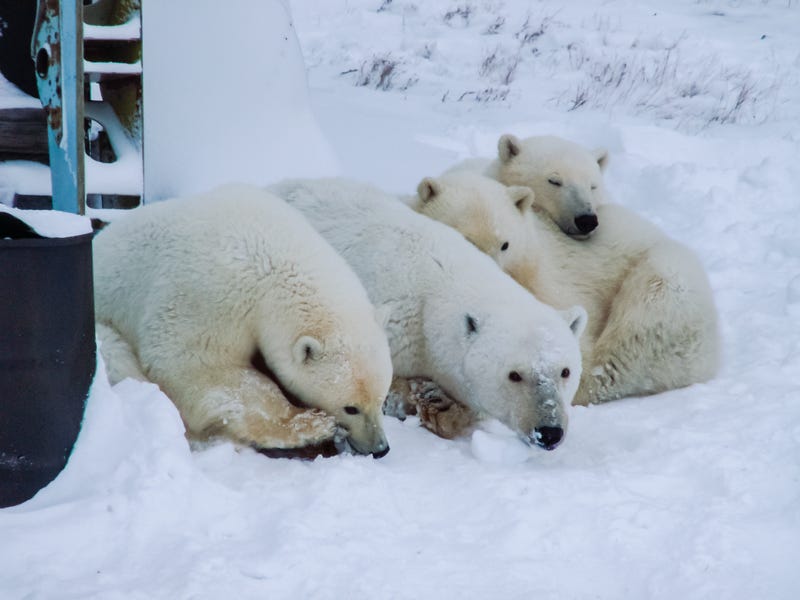
A little over a week ago, Russia invaded Ukraine. In that short amount of time, the conflict has had a wide impact – from Ukrainian hospitals to U.S. researchers.
Ukrainian doctors have reported that surgeries for malignant tumors have been canceled to make way for mass casualties. Scientists in the U.S. fear that canceled research trips in Russia will weaken our understanding of climate change at a critical time.
As concerns continue to grow, fighting continues.
“Our free people. You are now at the height of your spirit. At a maximum of possibilities,” said Ukrainian President Volodymyr Zelensky in a video posted to his Facebook page Saturday. “Every solider on our lines of defense. Every doctor who saves lives. Every firefighter who extinguishes fire.
Every entrepreneur who continues to work. Dozens and dozens of other professions.”
From the time the invasion began on Feb. 24 through midnight Thursday, 331 civilians had died and another 675 had been injured, according to the Office of the UN High Commissioner for Human Rights.
“They were killing us. They were killing children,” Zelensky said. “Look at Borodyanka. Look at the destroyed schools. At the blown-up kindergartens.”
Kharkiv, Ukraine’s second-largest city, has also been targeted. According to CNN, it was known for palliative care facilities and is now “one of the country’s most bombed areas.” Russian forces targeted residential areas there over the last week, such as schools, shops, hospitals, apartment blocks and churches, said the outlet.
In Kharkiv, an oncology surgeon using the pseudonym “Peter” said all elective surgeries at he hospital where he works were canceled the day of the invasion, according to The Lancet. These included surgeries for patients with malignant tumors.
“Such patients, in addition to the feasible struggle against the occupiers, are forced to fight their disease alone, without our help,” he said.
Another surgeon interviewed by The Lancet who asked to remain anonymous said their hospital had just received a “massive admission” of people injured by bombings in Kharkiv.
“I work in a surgical hospital,” they said. “Now, we are only focused on civilian injured people.”
Some staff at that surgeon’s hospital had been staying at the hospital for five days amid the attack.
“We have food and water but it's quite limited...if this situation continues we will be short of medicines, infusions, and blood,” they said.
Some child patients from Kharkiv were recently transported to the Ukraine-Poland border. In Kyiv, Ukraine’s capital city, children at the Okhmatdyt cancer hospital were forced to shelter in the basement and to take long journeys to medical centers elsewhere, such as Lviv in western Ukraine.
Apart from disrupting medical care in the Ukraine, the Russian invasion has impacted U.S. scientists planning to work in Russia, according to the American Association for the Advancement of Science (AAAS).
According to the association, U.S. researchers will most likely not be able to go on an annual science expedition focused on polar bears crossing from Alaska to Siberia across the Chukchi Sea. Eventually, the bears arrive at their home on Russia’s Wrangel Island.

“There’s no way,” says Eric Regehr, a University of Washington, Seattle, polar bear biologist who was planning to travel to Wrangel Island in October along with Russian researchers. “The idea of it being legal and safe and practical to go over there is zero.”
A statement provided Thursday by the U.S. Department of State said Canada, the Kingdom of Denmark, Finland, Iceland, Norway, Sweden, and the United States will not travel to Russia for meetings of the Arctic Council, a forum currently led by Russia that addresses issues related to the Arctic, is an example of the tense atmosphere.
“It looks like Iron Curtain 2 has come down between us,” says James Morison, a University of Washington oceanographer whose polar research began during the Cold War. “A small concern relative to the suffering of the Ukrainian people, but an unfortunate wrinkle nonetheless.”
The polar bear expedition offers a “critical window into the fate of thousands of bears,” according to AAAS. In recent years, trips have also been impacted by the COVID-19 pandemic.
Regehr is concerned that gaps in data could further add to the threats faced by polar bears, which already face challenges due to climate change.
“It’s a bad time to stop the data collection,” he said.
LISTEN on the Audacy App
Sign Up and Follow Audacy
Facebook | Twitter | Instagram

